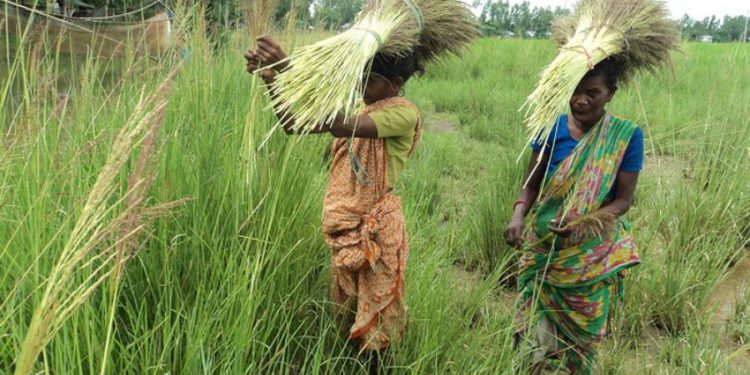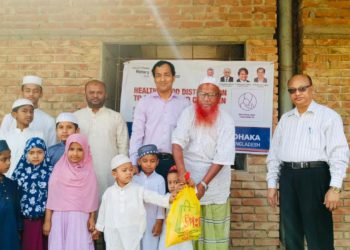Mirza Abdur Rob Bulbul :: Chalanbeel is formed by rivers, canals and beels. Good water, good crops, Shamla The 9 Upazilas of the historical Chalanbeel of Bangladesh are Tarash, Ullapara, Shahjadpur, Faridpur, Bhangura, Chatmohar, Gurudaspur, Singra and Atrai. About 200,000 small ethnic groups or tribal’s live in this region. Among them, there are men and women of different communities. On-site information search shows that tribal women from different villages in Chalanbeel area wake up in the morning and after finishing all their household chores, go out to collect Binnaful.
At one time, the men and women of these communities used to hunt various animals and birds, including foxes, rabbits, and turtles, in the forests and jungles. Over time, the forests and jungles have been destroyed due to the touch of modernity, and their livelihood has declined. Therefore, the indigenous and small ethnic groups of the Chalanbeel area have changed their ancestral professions and are now involved in agricultural work. They do various types of work in the fields, including planting rice on farmers’ land, harvesting rice, threshing rice, road work, and masonry work. Indigenous men and women are hard working, and their wages are much lower than those of agricultural workers from other communities, so their work is in high demand. During special times of the year, they do not have much work in the area, so they cannot earn regularly.
Therefore, during this idle time, they take up the work of picking flowers for their livelihood. Indigenous women collect flowers in the months of Ashwin and Kartik.
They tie flower garlands from morning till evening, dry them and store them at home. When they have no work to do, they make flower brooms with these flowers. They sell the brooms they make at wholesale and retail prices in various markets and villages in the area.
This is how the families of the small ethnic groups or tribal’s survive with the money they earn from selling brooms during their free time. Information research shows that they sell a broom they make to traders for 30/- to 40/- taka.
On the other hand, traders buy brooms from them and sell them in the city for 50/- to 60/- taka. When the respective social service officers of the 9 Upazilas of Chalanbeel were contacted in this regard, they sincerely said that the people of the small ethnic groups are very hard working. They said that low-interest loan assistance and various types of training are provided by the social service office to make them self-reliant.
They also said that they have learned the technique of making brooms from their ancestors. The tribal people of the Chalanbeel area benefit a lot from selling the brooms they make. However, the people of the tribal community feel that if they are given more help and support from the government, they will benefit and the country and the nation will benefit.




















